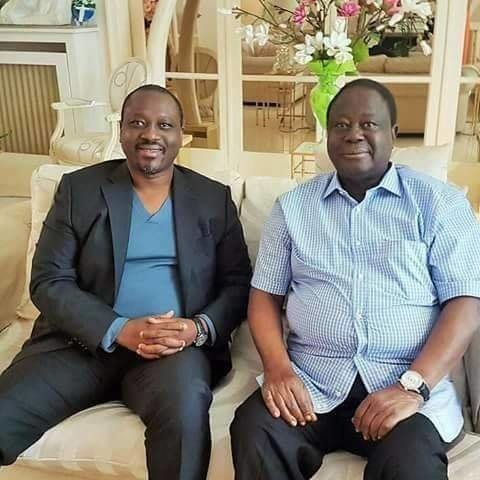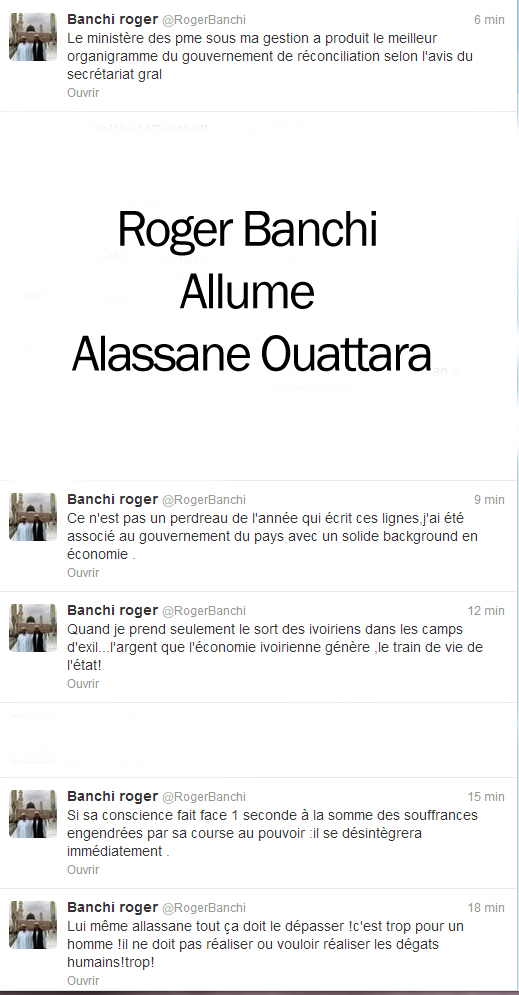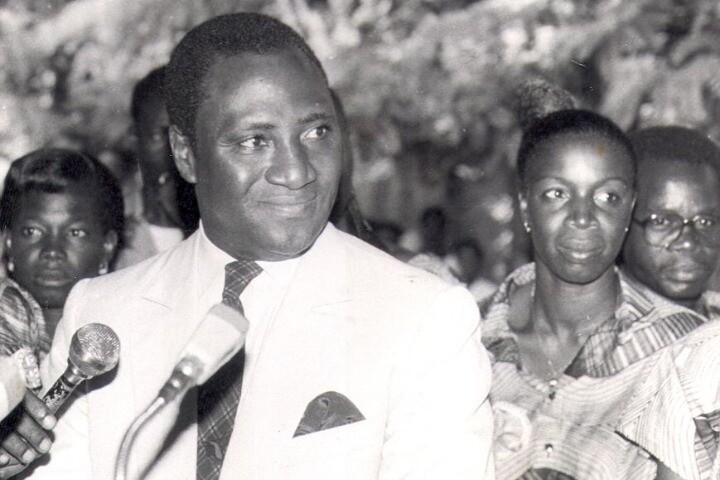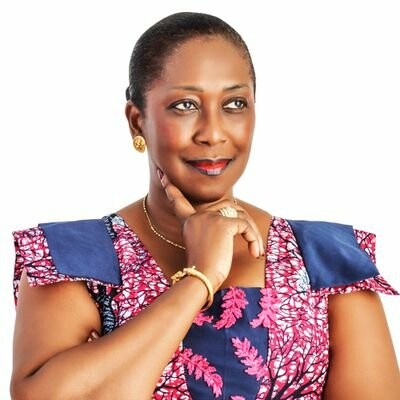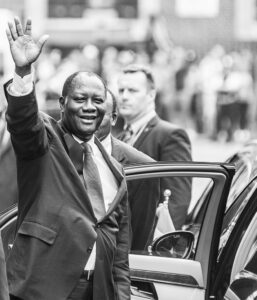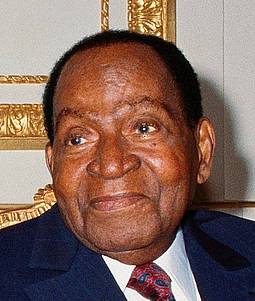
La cérémonie de remise du Prix Félix Houphouët-Boigny pour la recherche de la paix, attribué pour l`année 2010 à l’Ong de l’Argentine Grands-mères de la place de Mai, aura lieu le 14 Septembre 2011 à 15h00, au Siège de l`UNESCO à Paris en présence du président Henri Konan Bédié, protecteur dudit prix. Parmi les hautes personnalités présentes à cette cérémonie figurent le président ivoirien Alassane Ouattara.
Le Prix Félix Houphouët-Boigny pour la recherche de la paix sera à sa 20e édition cette année. Ce prix se propose d’honorer les personnes vivantes, institutions ou organismes publics ou privés en activité ayant contribué de manière significative à la promotion, à la recherche, à la sauvegarde ou au maintien de la paix, dans le respect de la Charte des Nations Unies et de l’Acte constitutif de l’UNESCO. Créé en 1989 par une résolution parrainée par 120 pays et adoptée par la 25e session de la Conférence générale de l’UNESCO, ce prix se situe dans la droite ligne de la philosophie des pères fondateurs de l’UNESCO, qui, dans le préambule de l’Acte constitutif de l’Organisation, déclarent solennellement que : « Les guerres prenant naissance dans l’esprit des hommes, c’est dans l’esprit des hommes que doivent être élevées les défenses de la paix ». Dans la même résolution, la Conférence générale donnait à ce Prix le nom hautement symbolique de Félix Houphouët-Boigny, le Sage de l’Afrique. Avant sa disparition, le Président Félix Houphouët-Boigny a désigné comme Parrain du Prix, M. Abdou Diouf, ancien Président de la République du Sénégal, et comme Protecteur du Prix, M. Henri Konan Bédié, ancien Président de la République de Côte d’Ivoire, tous les deux intuitu personae. Pour cette cérémonie, plusieurs chefs d’Etat seront présents, dont l`Argentine Cristina Kirchner et l`Ivoirien Alassane Ouattara.
La valeur du prix
Attribué chaque année, pour la recherche de la paix ce prix comprend un chèque de 122 000 euros à répartir au besoin entre les récipiendaires, une médaille d’or et un diplôme. Il est décerné par un jury international composé de onze personnalités originaires des cinq continents et présidé par Henry Kissinger, anciens Secrétaire d’État américain.
Les différents lauréats du prix
Plusieurs illustres personnalités se sont vues décerner ce prix qui porte le nom du père fondateur de la Côte d’Ivoire moderne.
1991- M. Frederick de Klerk, Président de la République Sud Africaine; M. Nelson Mandela, Président du Congrès National Africain (ANC).
1992- Académie de Droit International de la Haye, Pays-Bas.
1993- M. Yasser Arafat, Président de l`Organisation de Libération de la Palestine (OLP); M. Yitzhak Rabin, Premier Ministre d`Israël; M. Shimon Peres, ministre des Affaires Étrangères d`Israël.
1994- M. Carlos Juan, Roi d`Espagne; M. Jimmy Carter (Ex-Président des États-Unis d`Amérique), Président du Carter Center d`Atlanta, États-Unis d`Amérique. 1995 Mme Sadako Ogata, Haut Commissaire des Nations-Unies pour les Réfugiés; Haut Commissariat des Nations-Unies pour les Réfugiés (HCR).
1996- M. Alvaro Arzu, Président du Guatemala; M. Rolando Moran, Dirigeant de la Guérilla au Guatemala.
1997- M. Fidel V. Ramos, Président de la République des Philippines; M. Misuari Nur P., Président du Front de Libération Nationale Moro.
1998- M. George J. Mitchell, ancien conseiller du Président Bill Clinton pour les affaires irlandaises; Mme Sheikh Hasina, Premier Ministre de la République du Bangladesh.
1999- Communauté de Sant`Egidio Italie
2000- Mme Mary Robinson Haut Commissaire des Nations Unies aux droits de l`homme
2001- Prix non attribué
2002- Kay Rala Xanana Gusmâo, Président de la République démocratique du Timor-Leste
2003- Deux chefs religieux Bosniaques : Le Grand Mufti de Bosnie-Herzégovine, Mustafa Ceric et le Cardinal catholique Roger Étchegaray, ancien Président du Conseil Pontifical Justice et Paix.
2004- non attribué
2005- M. Abdoulaye Wade, Président de la République du Sénégal….
La délégation du Pdci aux côtés du Président Bédié
Arrivé, le dimanche 11 septembre 2011 à Paris, le président Henri Konan Bédié a été accueilli à par son épouse, Mme Henriette Bédié ; l’ambassadeur Ally Coulibaly, le personnel consulaire et des responsables politiques du Rhdp France. Le président du Pdci était accompagné d’une forte délégation composée de personnalités proches de son parti. Entre autres, le président du Conseil économique et social (Ces), M. Marcel Zadi Kessy, le ministre des Infrastructures économiques, M. Patrick Achi, le ministre de la Production animale et des ressources halieutiques, M. Kobena Kouassi Adjoumani ; le ministre de la Famille, de la Femme et de l’Enfant, Mme Raymonde Goudou Coffie, Charles Diby, ministre de l’Economie et Finances, Ahoussou Jeannot, Garde des Sceaux, ministre de la Justice, le président de la jeunesse du Pdci, Kouadio Bertin, Zié Daouda Coulibaly, président du Fep…
JN
Source : SERVICE DE PRESSE UNESCO
Félix Houphouët-Boigny
- © UNESCO/ Mamadou S. Koné
« Our combat is not over, it will never be over. The real combat, the combat for peace is still going on ».Félix Houphouët-Boigny
The General Conference of UNESCO conferred on the Prize the highly symbolic name of Félix Houphouët-Boigny, the « Sage of Africa ». The Prize is as consonant with UNESCO’s first and highest calling as the name of Félix Houphouët-Boigny symbolizes peace and humanism of a legendary African figure who dedicated his entire life to the cause of peace.
The Sage of Africa (1905-1993)
Félix Houphouët-Boigny, who had been a doctor and a planter, was elected member of the French Constituent Assembly in October 1945. From the very beginning of his term in office his name was associated with the law of 4 April 1946 abolishing forced labour in all the territories of the French colonies of Black Africa. Speaking before the members gathered in the National Assembly he exclaimed : “I ask you: how can the foundation of the French Union by the National Assembly be reconciled with the disguised slavery of forced labour and its trail of suffering ?”
In October of the same year, he convened the Bamako Congress, which led to the creation of the ‘Rassemblement Démocratique Africain’ (RDA), the first political movement to militate for the emancipation of the peoples of the countries of Black Africa under French rule.
From 1956 to the proclamation of the independence of his country, Côte d’Ivoire, in 1960, he was a member of all the governments of France’s Fourth Republic. In that capacity, he participated in the drafting of the series of acts that, from the model law of June 1956 to the new French Constitution of 4 October 1958, paved the way for the autonomy and subsequent accession to independence of the former French colonies of Black Africa wishing to take that course. Through his patient, dogged efforts in the governments of which he was a member, and the results he obtained for the whole of what used to be French Africa, he penned one of the most exemplary pages in the history of decolonisation.
On accepting the responsibilities vested in him as Minister of State to the Prime Minister’s Office, Félix Houphouët-Boigny said to Guy Mollet: “In working with you I shall try to spare you in Black Africa the mistakes and misunderstandings that led France into the notoriously unfortunate situations it found itself in Indochina and North Africa.” All his subsequent work illustrated that commitment of his, based on an increasing quest for dialogue and peace.
On 7 June 1962, at the Royal Institute of International Affairs in London, he set out his political philosophy and expressed his confidence in the ‘human spirit’: “We have always preferred negotiation in all circumstances, because we are convinced that a compromise acceptable to everybody can emerge from a confrontation of the ideas and interests in question.”
In July 1962, he was already advocating dialogue between Arabs and Israelis. On a visit to Jerusalem, he said to his Israeli hosts: “We do not think there is any problem in the world, no matter how difficult or intractable, that cannot be settled through negotiation.”
- © UNESCO/ Mamadou S. Koné
The President of Côte d’Ivoire, surrounded by Mr Frederik W. De Klerk and Mr Nelson Mandela, first laureates of the Félix Houphouët-Boigny Peace Prize.
As a man of peace and a political visionary, Félix Houphouët-Boignyforesaw more than twenty years ago the process to dismantle apartheid in South Africa: “It is a mistake to think that there is no alternative but war to get rid of apartheid: if peace is to be brought to Africa we can and must engage in dialogue. In any event, dialogue will be essential one day, whether it comes before war or after war. It is infinitely preferable to engage in dialogue as early as possible in order to avoid war, which, and I cannot repeat this often enough, can never settle anything in our day and age.”
The thinking of Félix Houphouët- Boigny and the ideals of UNESCO can plainly be seen to be converging towards the same end. In the speech he made before the United Nations Economic and Social Council on 30 June 1976, President Félix Houphouët-Boigny said:
“Nothing will change as long as statesmen do not make the quest for peace something more than the mere window-dressing of their policy. Everything will change when this quest for peace has become the main and real goal of their concerns and second nature to them. The interests they defended up to that time will then seem to them to have been very mean and perverse. Peace is not an empty word but a form of behaviour.”


